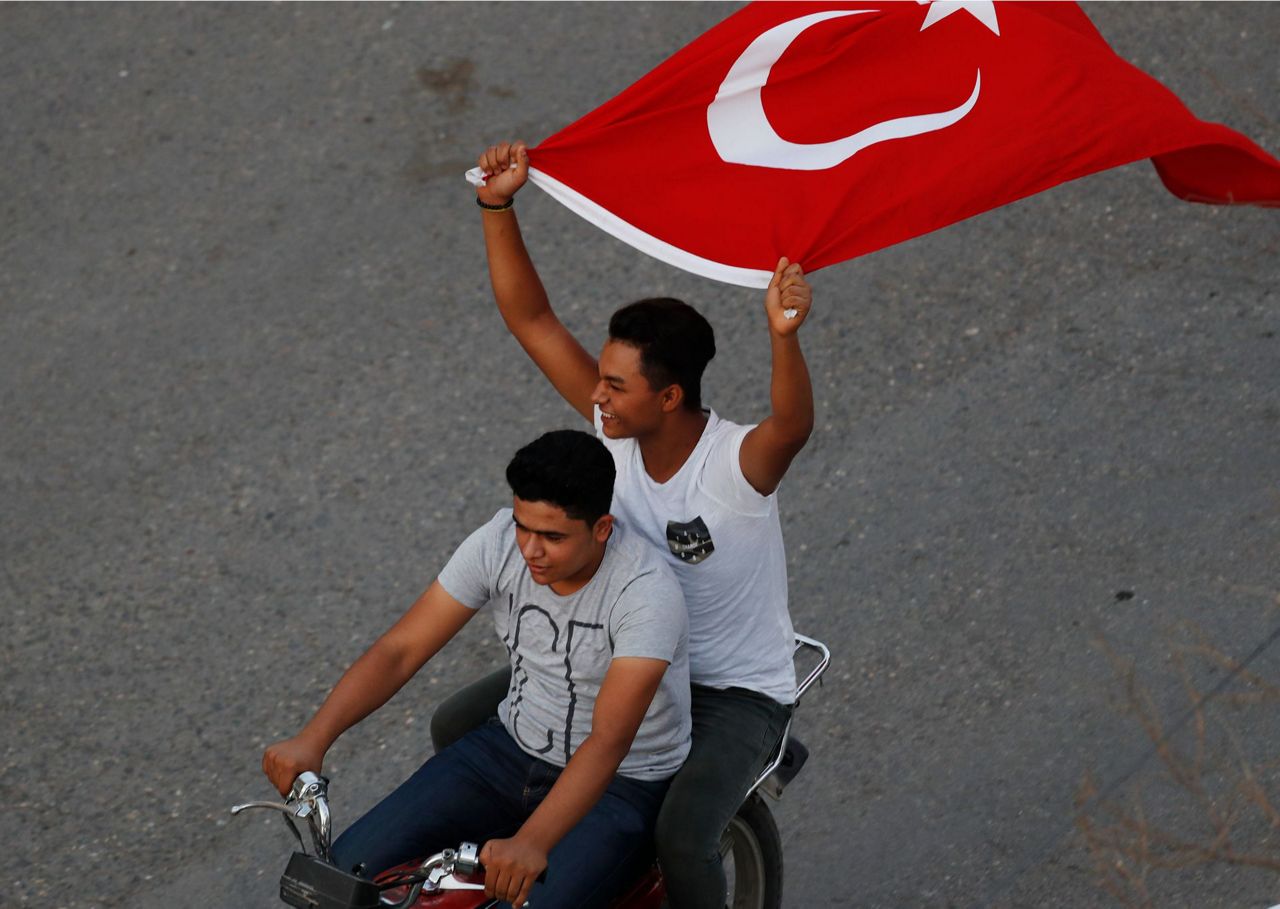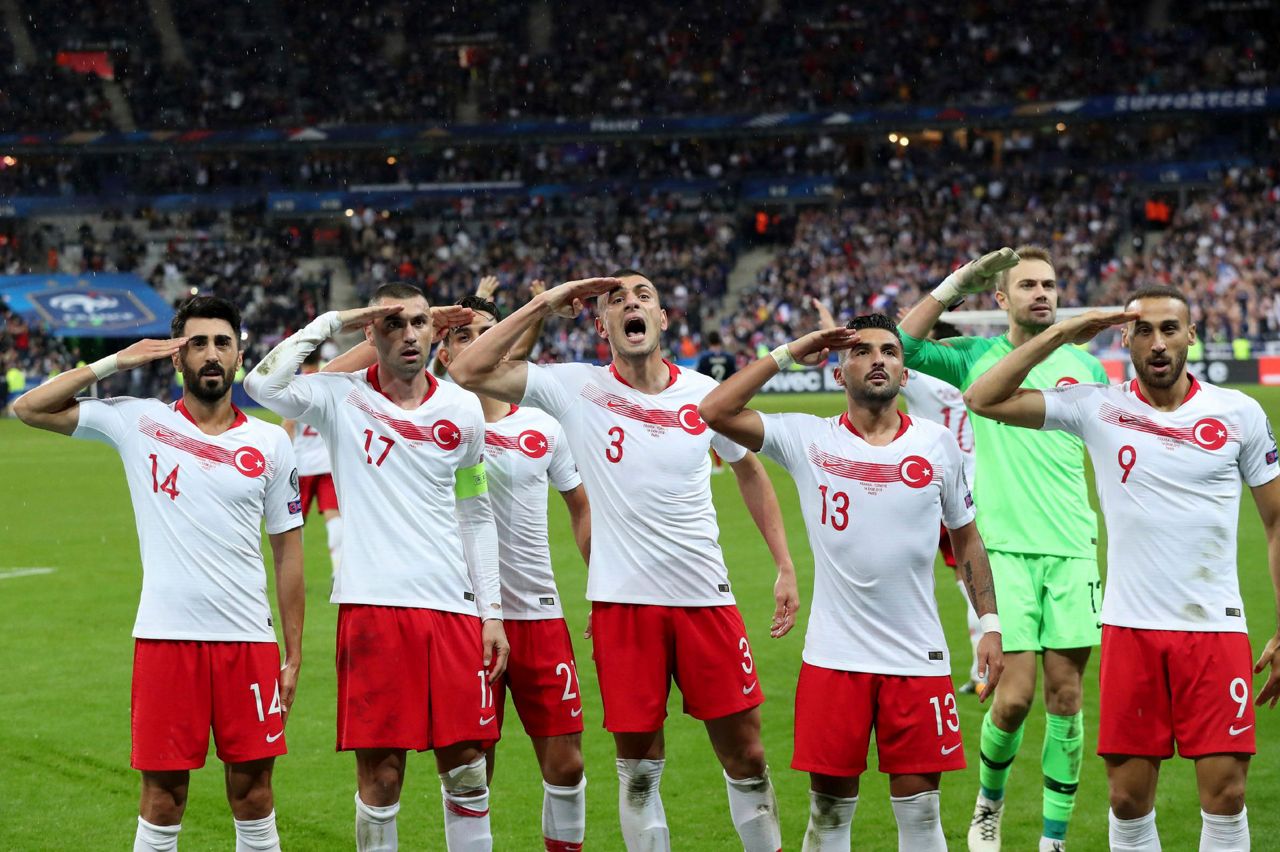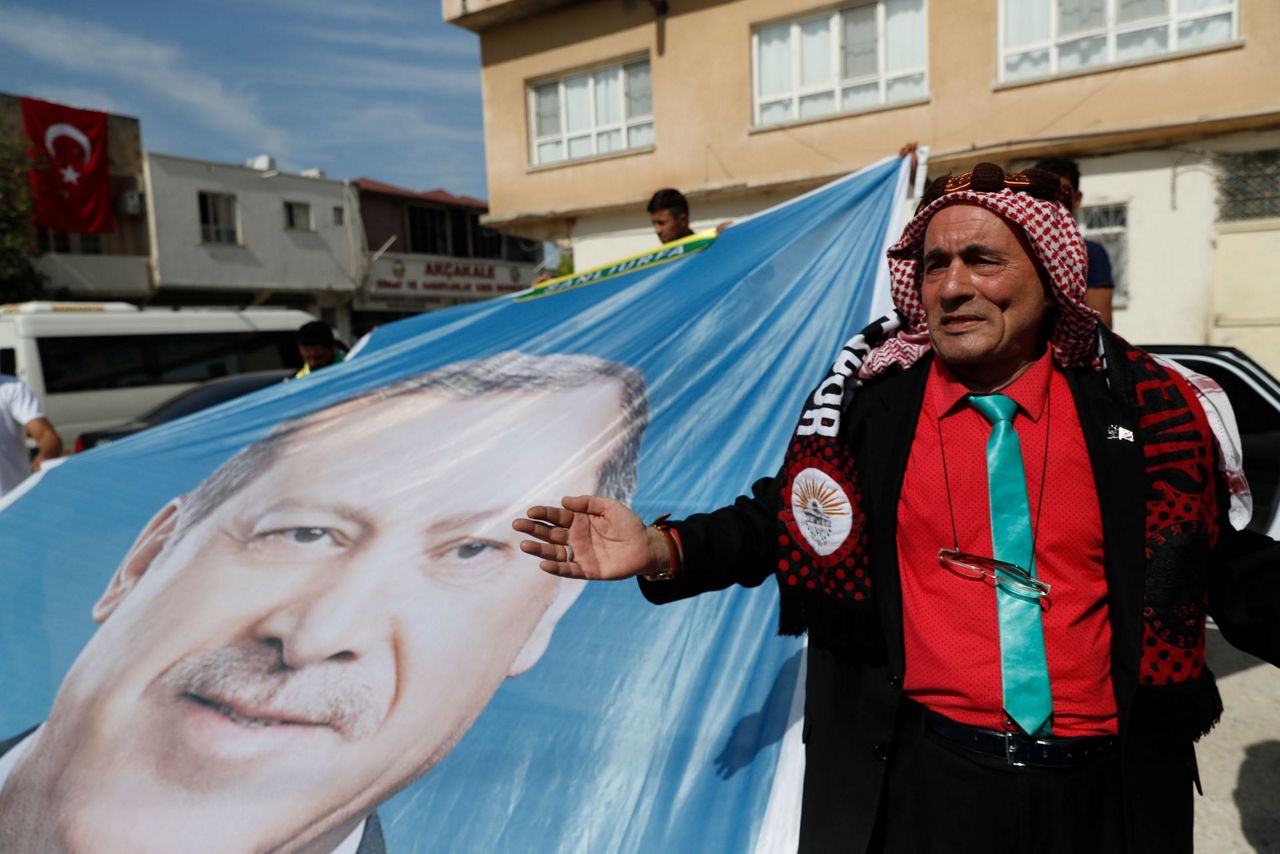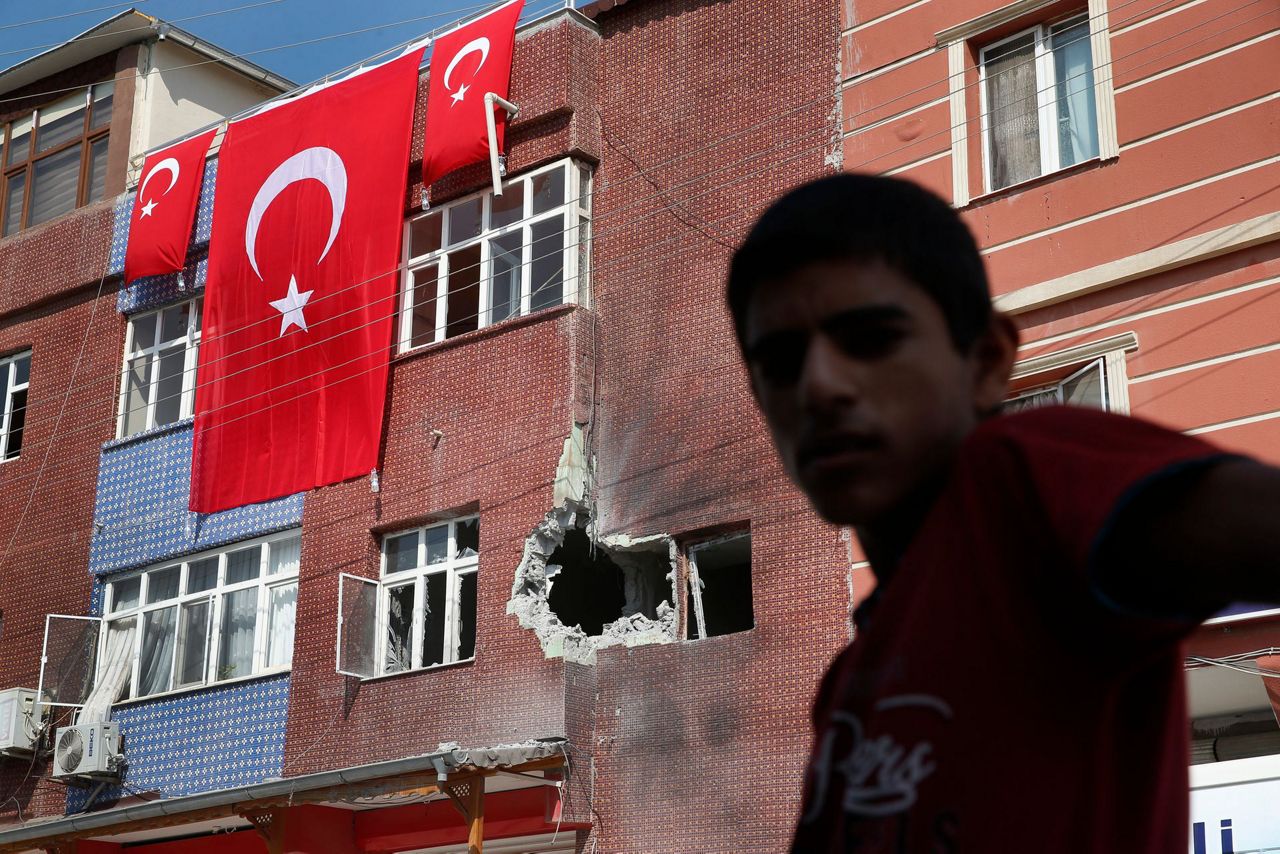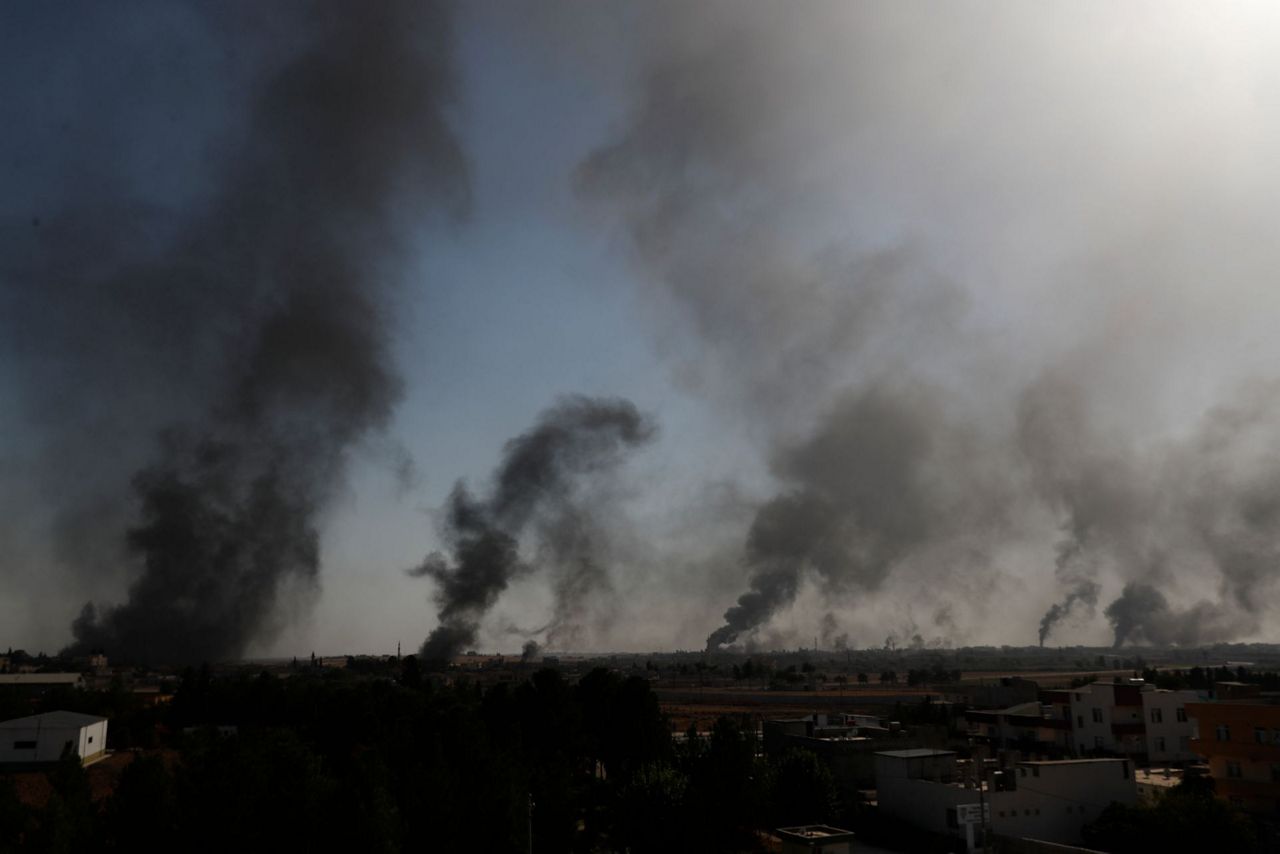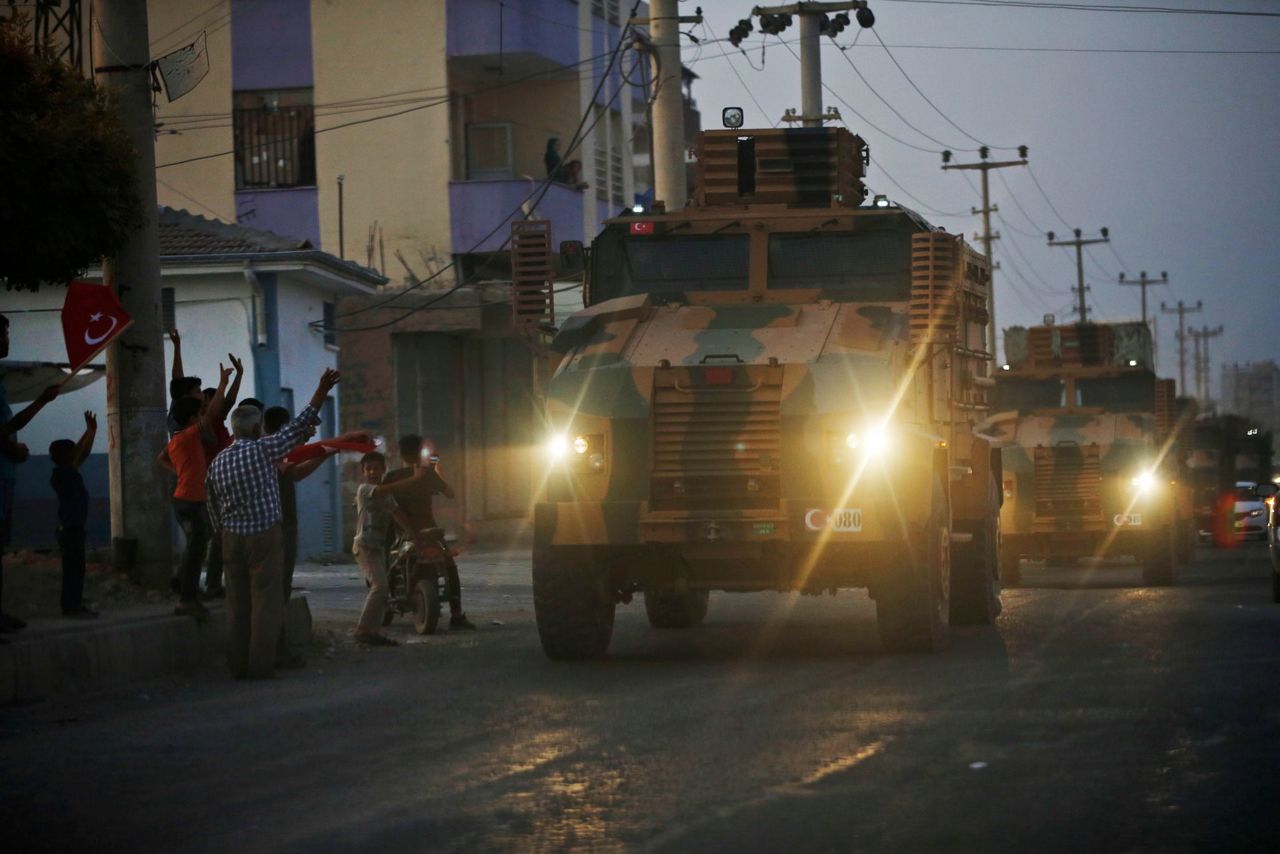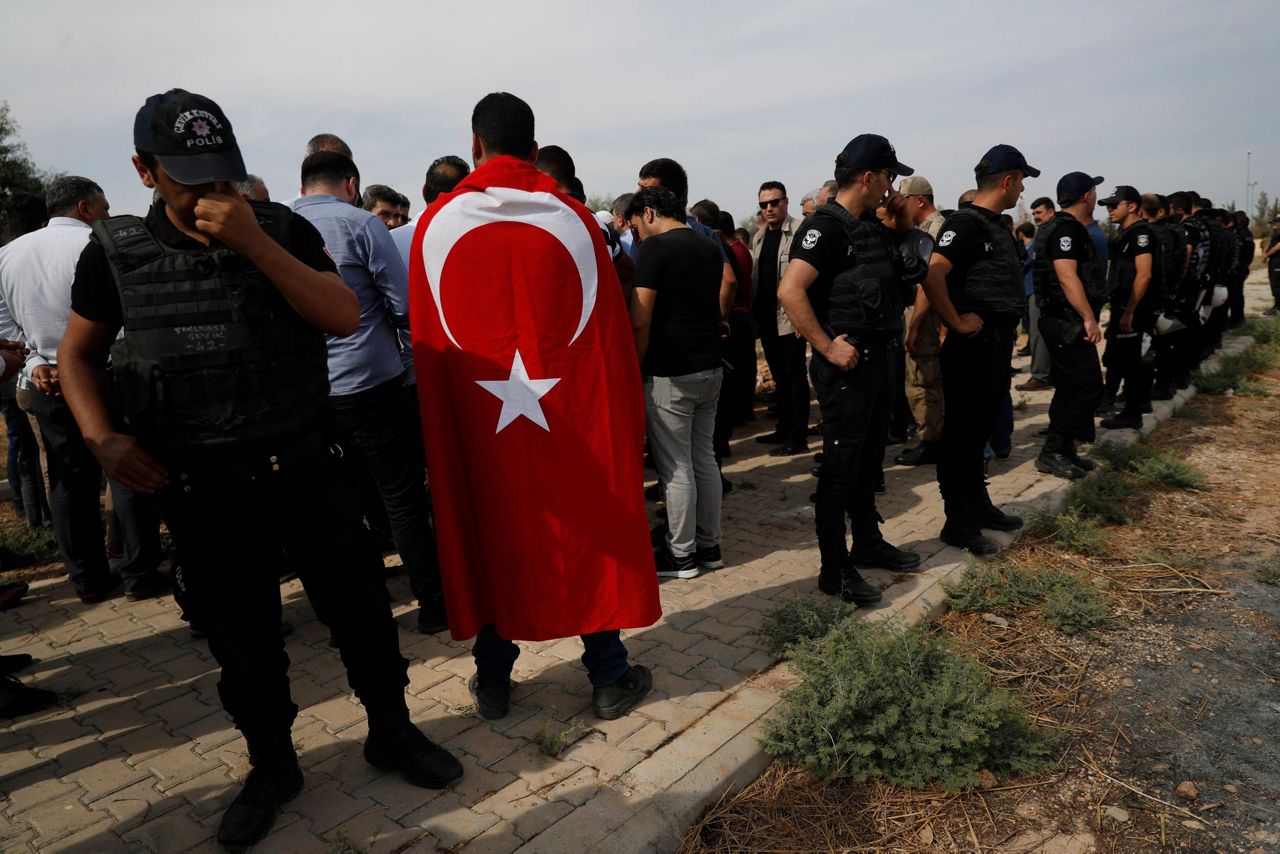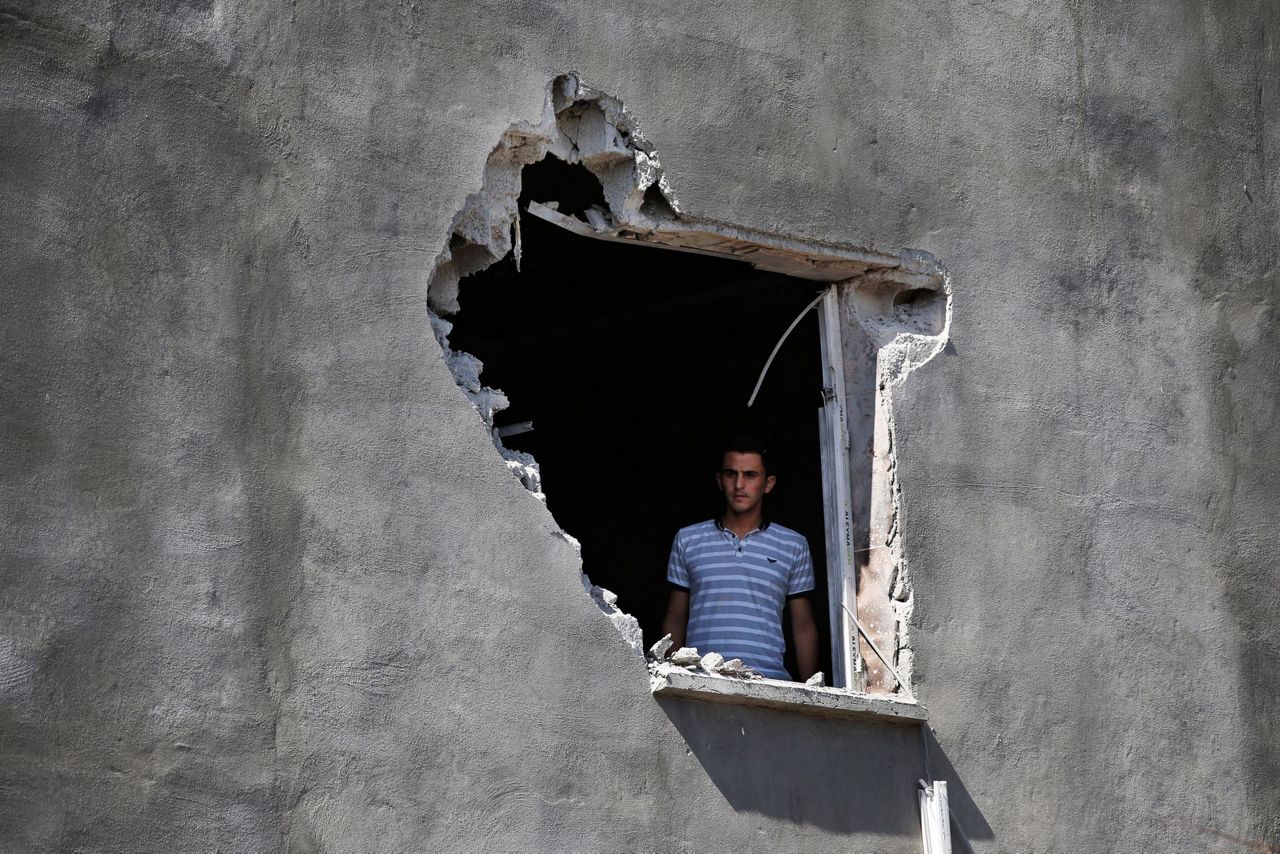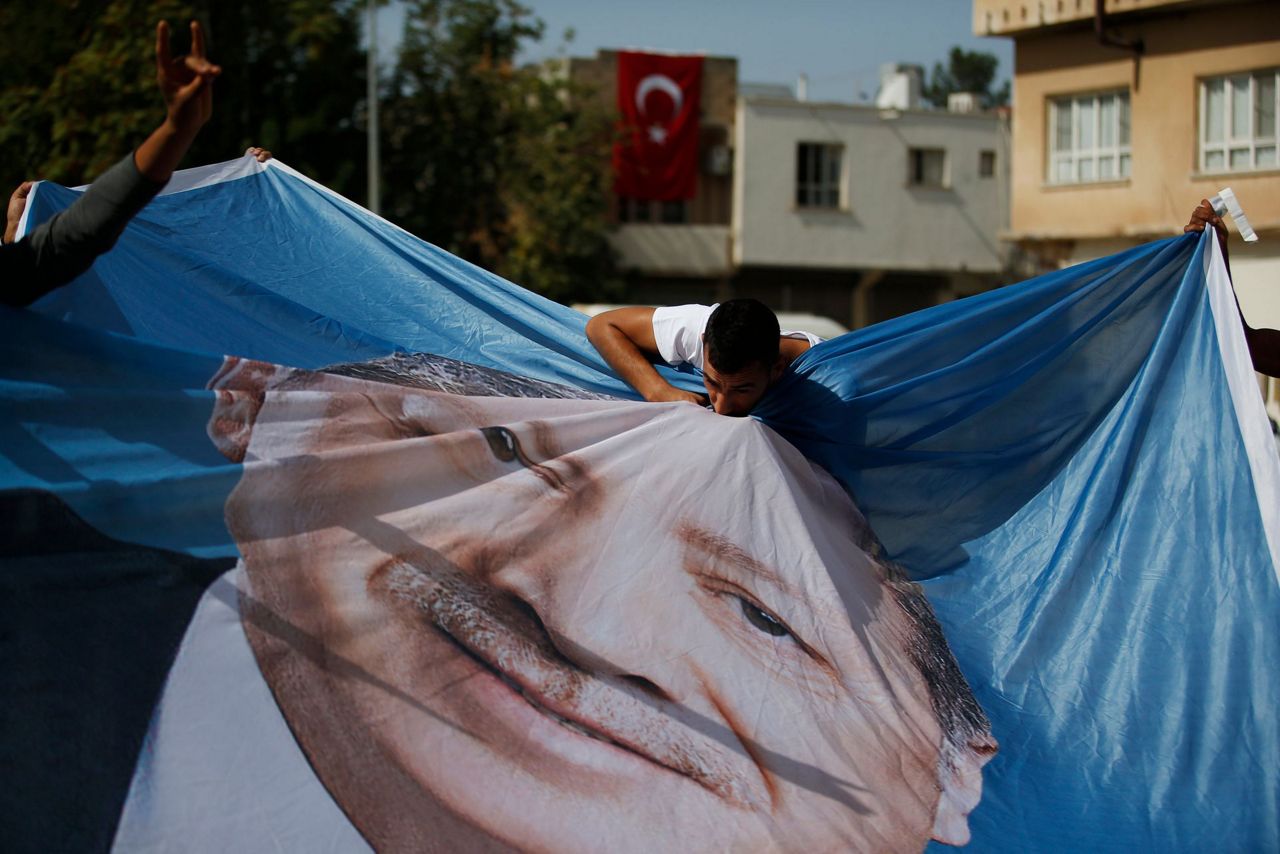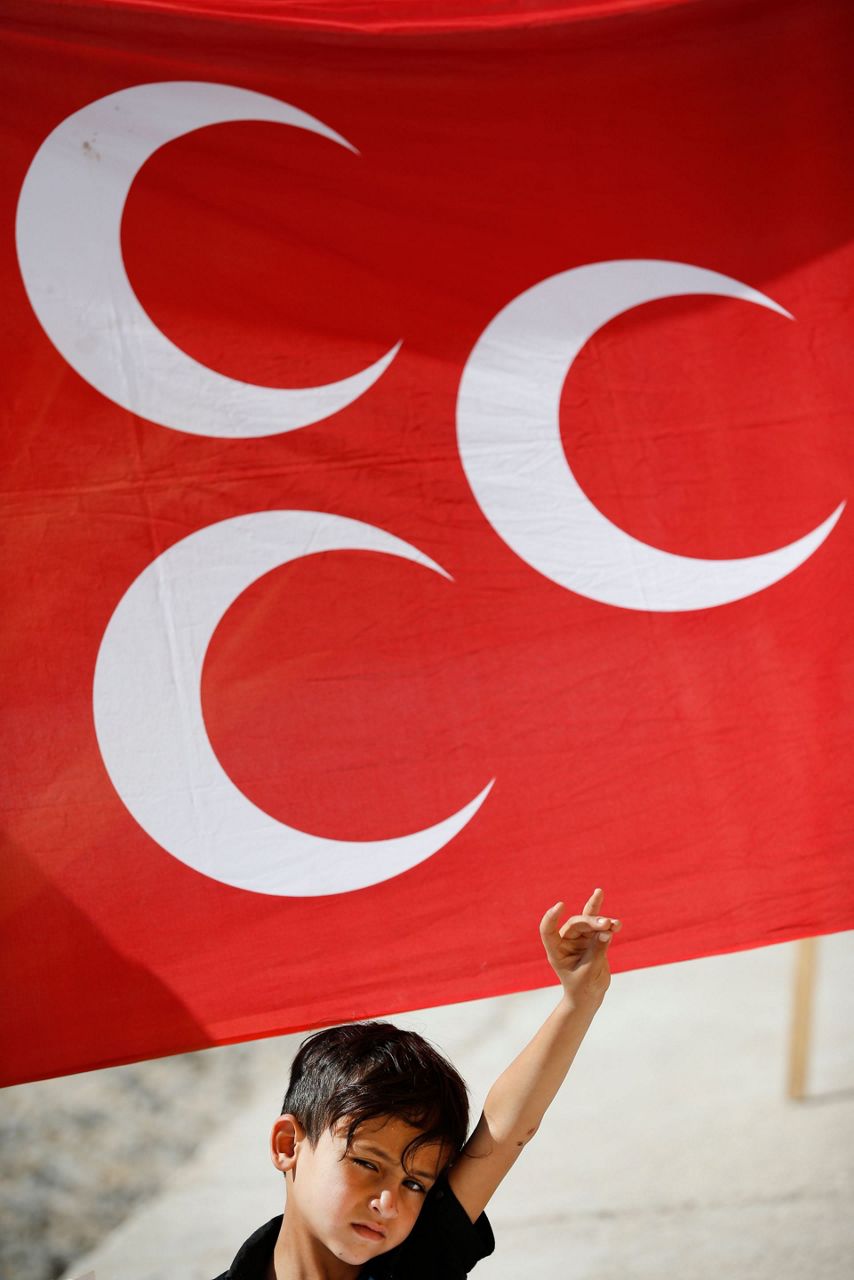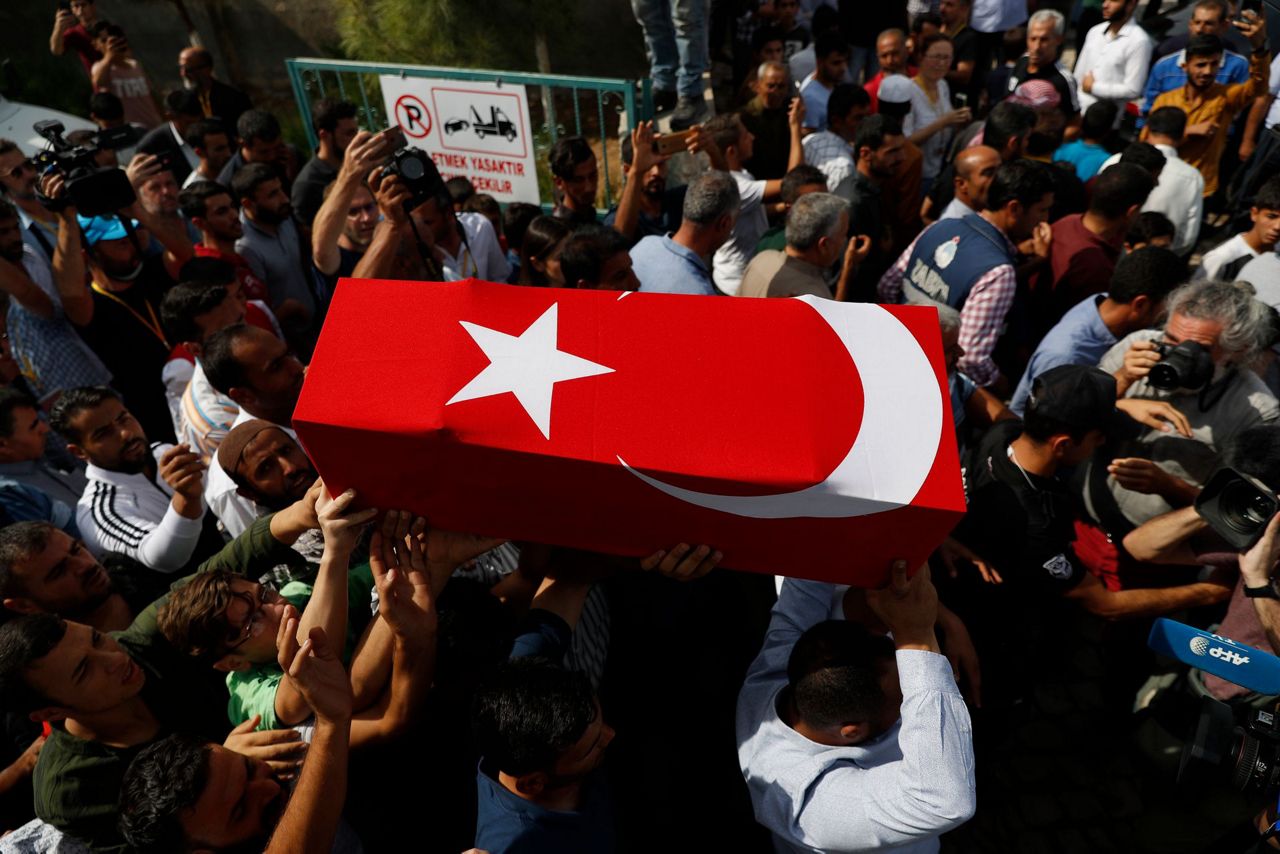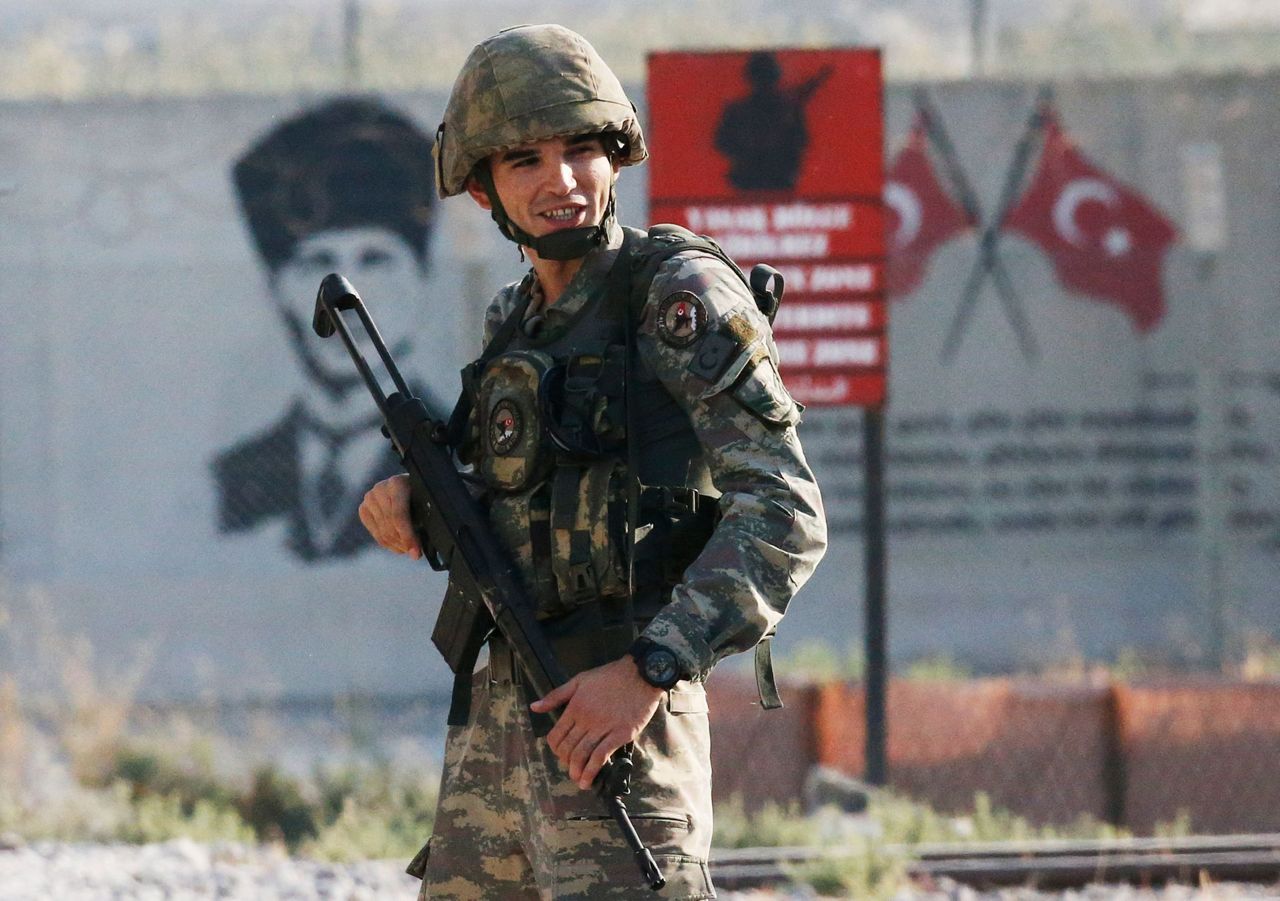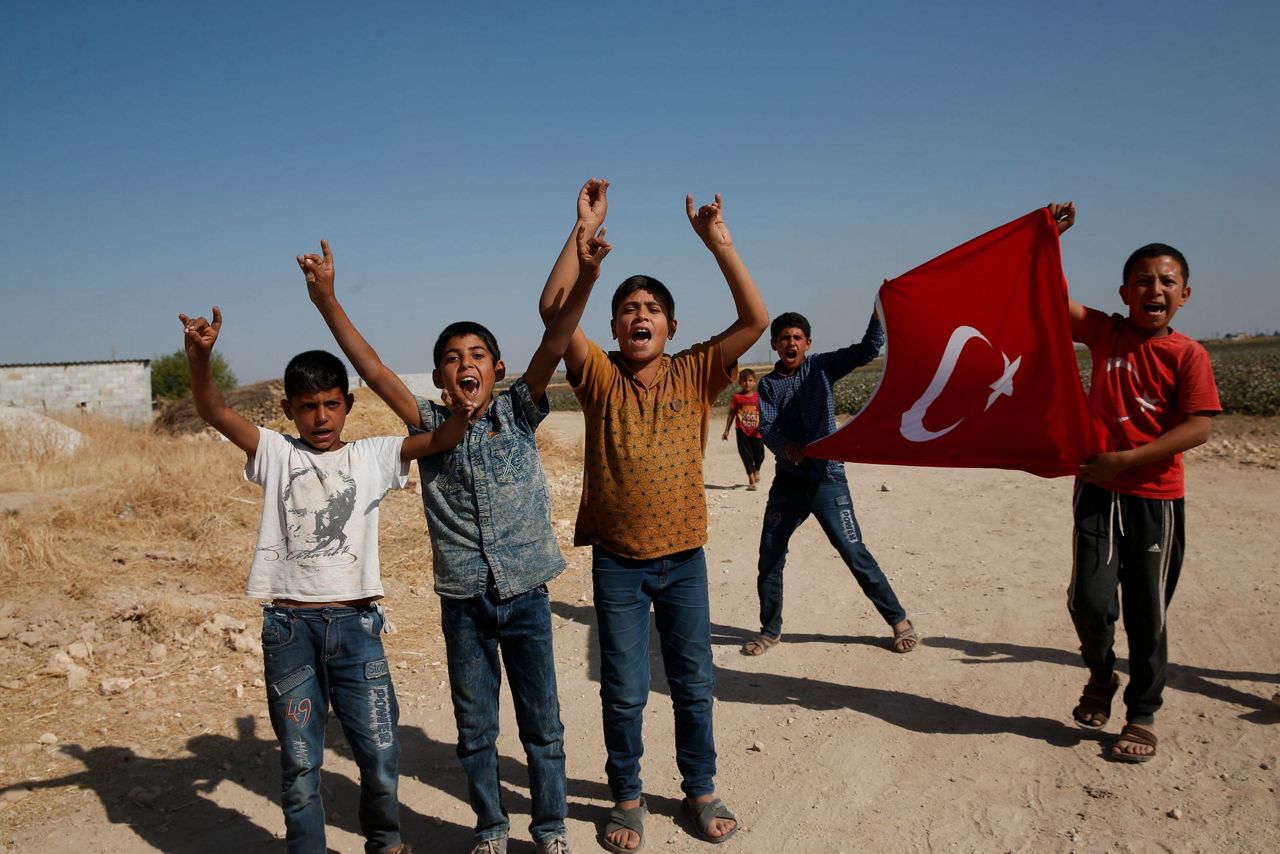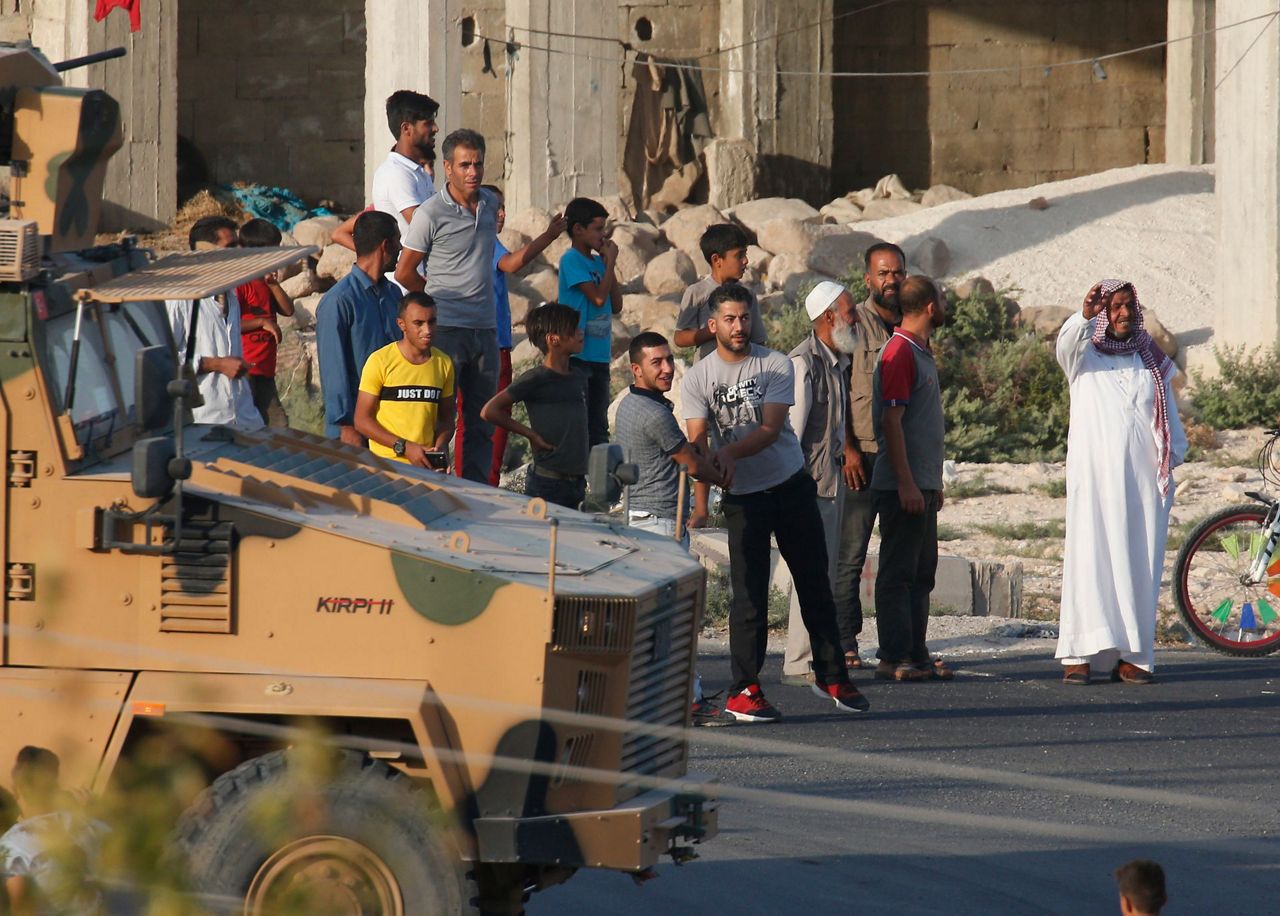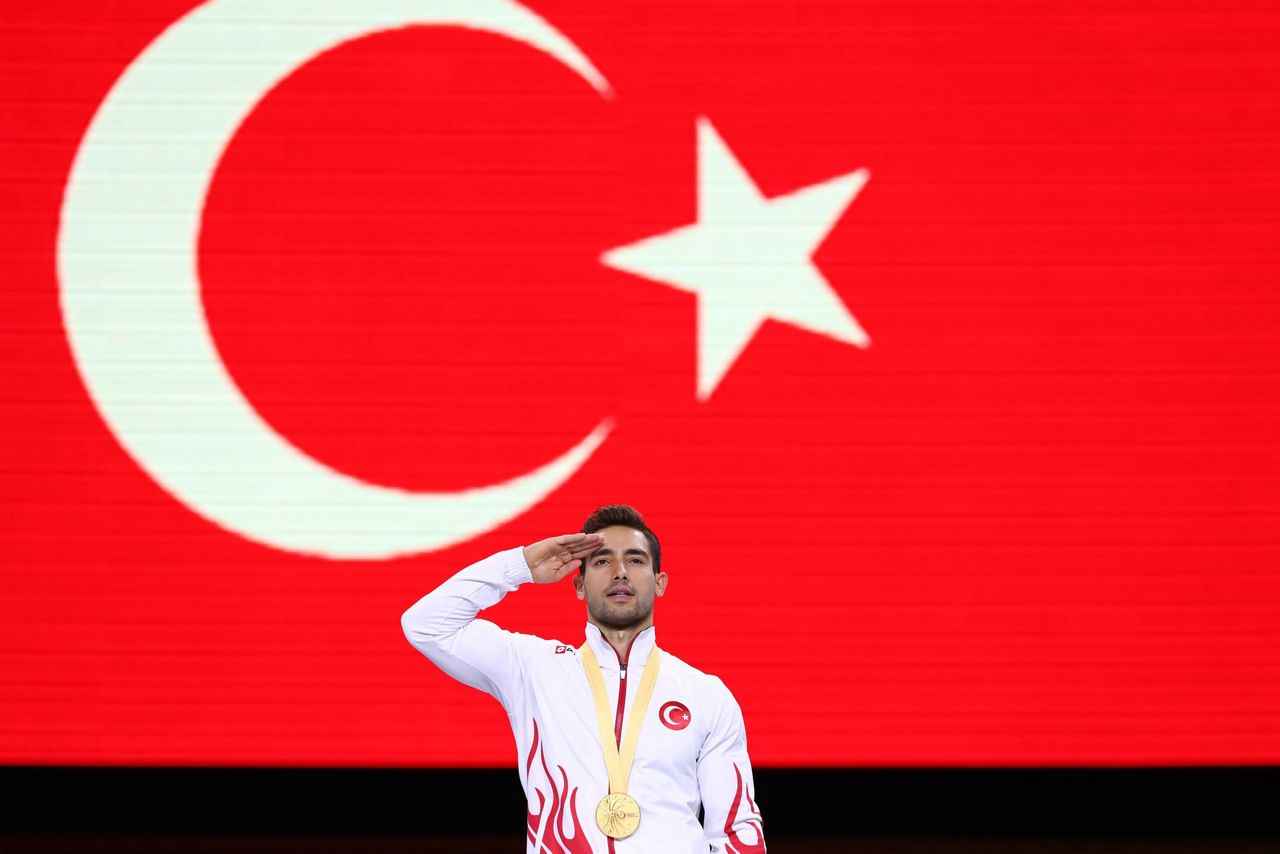AKCAKALE, Turkey (AP) — National soccer team players give military salutes during international matches, Turkish flags flutter from balconies and storefronts, songs extolling the glory days of the Ottoman Empire blare from a border town's loudspeakers, punctuated by the occasional boom of outgoing artillery.
Since Turkey announced its incursion into neighboring Syria to clear out Kurdish fighters last week, patriotic sentiment has run high — as has bewilderment and anger at the overwhelmingly negative international reaction to Ankara's actions.
"At times of this kind of Turkish operation, we as Turkish people feel prouder about our nation," said Cuma Gunay, a 47-year-old supermarket owner in the town of Akcakale, which sits on the border with Syria.
A Turkish flag hangs above his shop entrance, and he keeps another behind his desk. "We are proud of our flag, that's why we hang it on our homes and shops. And it's also to support the Turkish army for our fight in Syria."
His town has been hit by mortar rounds since the Turkish offensive began, causing damage but no deaths, although there have been 20 civilian deaths elsewhere in Turkey from mortar attacks. Turkish-backed Syrian fighters occasionally drive across the border from the battlefield, flashing victory signs and chanting "Allahu Akbar" — God is great — from the back of their pickup trucks.
Just across the border lies the Syrian town of Tal Abyad, which fell to Turkish-backed forces Sunday, although sporadic fighting has continued and Turkish forces were still firing artillery from Akcakale on Tuesday.
News that Tal Abyad had fallen, announced on state-run media even as shelling continued, led to a flurry of random jubilatory events on the Turkish side. Small convoys of flag-draped cars drove through the dusty streets, horns blaring; gaggles of flag-waving men posed and cheered for TV cameras.
"I am overwhelmed by the joy of this achievement. But this achievement should be known by the whole world," 60-year-old Abbas Gulenc, a council member for President Recep Tayyip Erdogan's AK Party, said at one such event. He spoke beside a giant poster of Erdogan, who he said "is the real leader of the whole Muslim world and we all love him."
Turkish troops and Turkish-backed Syrian fighters launched their offensive against Kurdish forces in northern Syria on Oct. 9, two days after President Donald Trump suddenly announced he was withdrawing American troops from the area. Erdogan has said he wants to create a 30-kilometer (20-mile) -deep "safe zone" in Syria.
Ankara has long argued the Kurdish fighters are nothing more than an extension of the Kurdistan Workers Party, or PKK, which has waged a guerrilla campaign inside Turkey since the 1980s and which Turkey, as well as the U.S. and European Union, designate as a terrorist organization.
But the offensive has led to an international outcry while causing tens of thousands to flee their homes and upending alliances in Syria's eight-year war. Having suddenly lost U.S. support, the Syrian Kurdish fighters have turned to Syrian President Bashar Assad to help them fend off Turkey's invasion, setting the stage for a potential military confrontation between Turkey and Syria.
Faced with a backlash, Erdogan launched a public relations offensive and blasted his critics, telling the EU he would "open the doors and send you 3.6 million refugees" if his Syria operation was described as an invasion.
That appears to have had little effect abroad. But at home many have rallied behind their president, and some appear genuinely taken aback by the international opprobrium raining down on Erdogan.
"Although Turkey is right to fight against terrorist organizations, European countries and America, all of them are against this operation and against Turkey. Why?" asked Gulenc, in a query often echoed in Akcakale. "Don't they know that this land is not owned by terrorist organizations? It's the land of Syria. So don't these countries know that America is bringing these terrorist organizations to this region for a purpose?"
All opposition parties, bar the pro-Kurdish People's Democratic Party, have voiced support for the offensive.
Criticism is not tolerated.
Last week, Interior Minister Suleyman Soylu said 121 people had been detained for social media posts critical of the incursion while some 500 people were under investigation for posts characterizing Turkey as an "invading" force and "insulting" the operation under Turkey's broad anti-terrorism laws.
There were dissenting voices within the main opposition Republican People's Party, or CHP, which many believe was forced to voice support to avoid being accused of having terrorist sympathies by Erdogan's ruling party. On Monday, authorities opened an investigation against CHP legislator Sezgin Tanrikulu over a series of critical tweets.
"While Turkey could have solved the Kurdish (issue) through dialogue, the government dragged Turkey to the swamp," Tanrikulu said. "War is death, war is pain, war is bloodshed."
There was also a backlash against Mustafa Akinci, president of the self-declared Turkish state in the ethnically divided island of Cyprus, who said although Turkey's offensive is named Operation Peace Spring, "what is being spilled is not water, it is blood." Erdogan was furious, saying Akinci "should know his place" and reminding the Cypriot politician he is in office "thanks to Turkey."
On Monday, Defense Minister Hulusi Akar said there was widespread support for the operation.
"Our people's support is a source of motivation for us," he said.
___
Associated Press writer Suzan Fraser in Ankara contributed.
___
Follow AP's full coverage of the war in Syria and the Turkish military operation at https://www.apnews.com/Syria
Copyright 2019 The Associated Press. All rights reserved. This material may not be published, broadcast, rewritten or redistributed.



